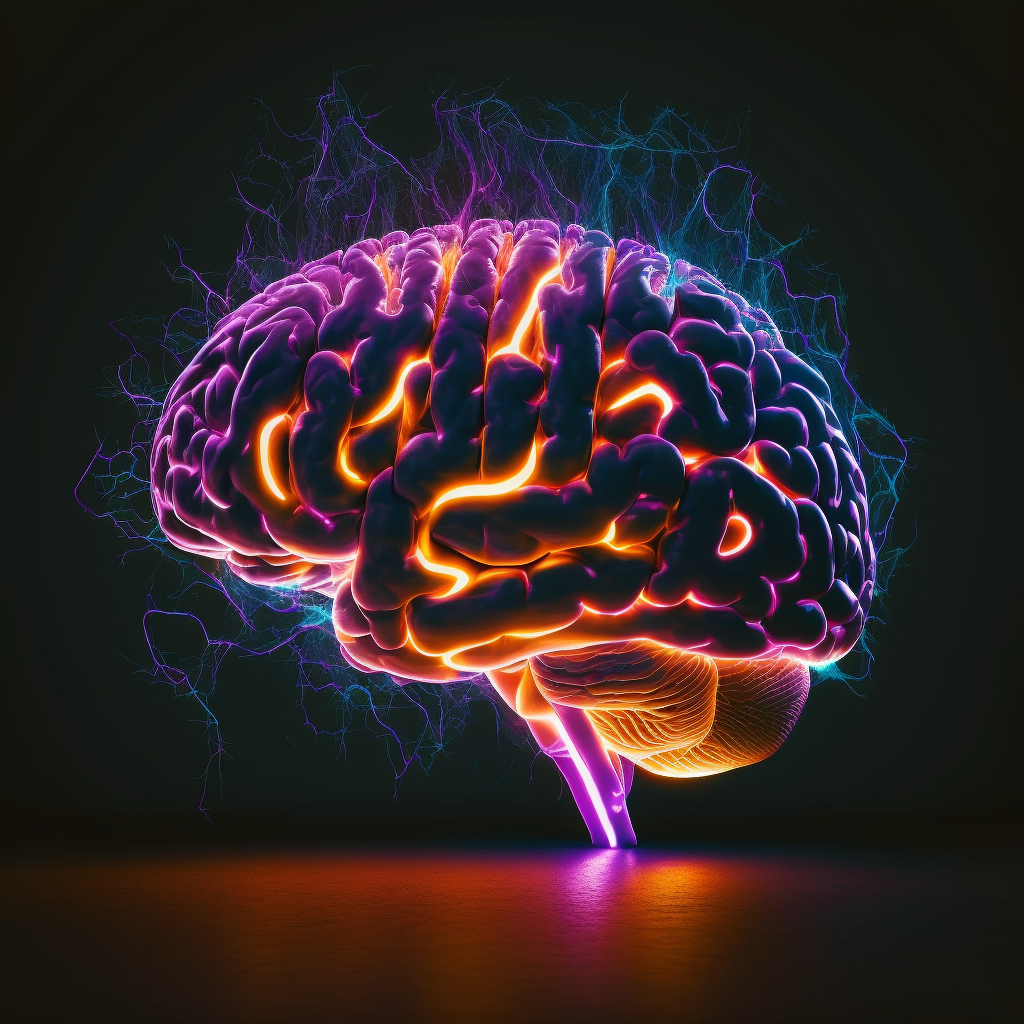Neuropsychiatry is a branch of medicine that focuses on the intersection of neurology (the study of the nervous system) and psychiatry (the study and treatment of mental disorders).
It deals with the assessment, diagnosis, and the treatment of individuals who have complex conditions that involve both neurological and psychiatric aspects. Neuropsychiatrists are medical doctors who specialize in understanding the relationship between brain function and behaviour. They have expertise in both neurology and psychiatry and are trained to evaluate and manage conditions that affect the brain and mind.
These conditions may include neurodevelopmental disorders (such as autism spectrum disorders and attention-deficit/hyperactivity disorder), neurodegenerative disorders (such as Alzheimer’s disease and Parkinson’s disease), epilepsy, traumatic brain injury, stroke, and various psychiatric disorders.
Introduction to Neuropsychiatry
The field of neuropsychiatry recognizes that many mental disorders have underlying neurological causes or manifestations, and it emphasizes the importance of understanding the biological basis of psychiatric symptoms.
Neuropsychiatrists employ a multidisciplinary approach, utilizing a combination of neurological examinations, neuropsychological testing, brain imaging, and other diagnostic tools to evaluate patients comprehensively.
Scope and Expertise of Neuropsychiatrists
Treatment in neuropsychiatry often involves a combination of pharmacological interventions, psychotherapy, and various rehabilitative strategies. The aim is to address the underlying neurological dysfunction while managing the associated psychiatric symptoms, improving quality of life, and promoting functional recovery.
It’s worth noting that the field of neuropsychiatry continues to evolve, and new research and advancements in understanding the brain and its disorders contribute to the ongoing development of diagnostic techniques and treatment approaches in this area.
Conditions Treated in Neuropsychiatry
Neuropsychiatry plays an important role in disability management by assessing, diagnosing, and providing treatment recommendations for individuals with neurological and psychiatric conditions that impact their functional abilities.
They conduct comprehensive evaluations to assess the cognitive, emotional, and behavioural functioning of individuals with neurological or psychiatric conditions. They use various assessment tools, including neuropsychological testing, to understand the specific impairments and their impact on daily functioning.
This evaluation helps in determining the nature and extent of disability.
Multidisciplinary Approach in Neuropsychiatry
Neuropsychiatrists can also evaluate an individual’s functional capacity to perform specific tasks and activities related to their occupation.
They assess cognitive abilities, emotional regulation, attention, memory, problem-solving, and other relevant factors. This evaluation helps determine the individual’s ability to work, return to work, or engage in certain activities.
Based on the assessment findings, they then develop individualized treatment plans that address the specific needs of the person with disabilities. This may involve a combination of medication management, psychotherapy, cognitive rehabilitation, vocational counseling, and lifestyle modifications.
The goal is to optimize functioning, manage symptoms, and improve overall quality of life.
Treatment Approaches in Neuropsychiatry
Neuropsychiatrists may prescribe medications to address psychiatric symptoms, manage behavioural issues, and target underlying neurological conditions.
They carefully monitor the effects of medications, adjust dosages as needed, and help individuals manage any side effects that may arise. They also work closely with other healthcare professionals, such as occupational therapists, psychologists, social workers, and vocational rehabilitation specialists, to provide comprehensive care.
They collaborate to develop rehabilitation plans, provide counseling and support, and ensure a holistic approach to disability management. Neuropsychiatry plays a crucial role in evaluating, treating, and supporting individuals with neurological and psychiatric conditions in disability management.
By addressing the complex interplay between brain function, mental health, and functional abilities, neuropsychiatrists contribute to optimizing outcomes and promoting the integration of individuals with disabilities into work, education, and society.
Evolving Field of Neuropsychiatry
Neuropsychiatry and neuropsychology are related fields that focus on the relationship between the brain, behaviour, and cognition.
While they share some similarities, there are distinct differences between the two. As indicated, Neuropsychiatry is a medical specialty that combines neurology and psychiatry. It emphasizes the diagnosis and treatment of individuals with complex conditions involving both neurological and psychiatric aspects.
Neuropsychiatrists are medical doctors who use a multidisciplinary approach, including physical examinations, neurological assessments, and psychiatric evaluations, to understand and manage the biological and psychological factors contributing to a patient’s condition.
Distinction between Neuropsychiatry and Neuropsychology
Neuropsychology on the other hand is a branch of psychology that focuses on the assessment and understanding of cognitive, emotional, and behavioural functioning related to brain dysfunction.
Neuropsychologists typically do not have medical degrees but hold doctoral degrees in psychology. They specialize in administering and interpreting neuropsychological tests to assess cognitive abilities, identify deficits, and understand the impact of brain injuries or disorders on a person’s behaviour and cognition.
They cannot prescribe medication in Canada.
Neuropsychiatrists vs. Neuropsychologists: Roles and Training
Neuropsychiatrists are medical doctors who have completed medical school, general psychiatry residency, and additional specialized training in neuropsychiatry.
They are qualified to prescribe medications, provide medical interventions, and offer comprehensive medical management for individuals with neuropsychiatric conditions. Neuropsychologists have doctoral degrees in psychology, usually with a specialization in neuropsychology. They undergo specialized training in neuropsychological assessment and intervention techniques but do not prescribe medications.
Neuropsychologists work closely with other healthcare professionals to provide recommendations and interventions based on their assessment findings.
Focus of Neuropsychiatrists and Neuropsychologists
Neuropsychiatrists focus on the assessment and treatment of individuals with complex conditions that involve both neurological and psychiatric aspects.
They evaluate and manage conditions such as neurodevelopmental disorders, neurodegenerative disorders, epilepsy, traumatic brain injury, stroke, and various psychiatric disorders. Treatment often involves a combination of pharmacological interventions, psychotherapy, and rehabilitative strategies.
Neuropsychologists, on the other hand, specialize in the assessment of cognitive, emotional, and behavioural functioning related to brain dysfunction. They administer neuropsychological tests to evaluate various domains of cognition, such as attention, memory, language, executive functions, and visuospatial skills.
Their assessments help identify cognitive strengths and weaknesses, provide diagnostic clarification, and inform treatment recommendations, which may include cognitive rehabilitation, compensatory strategies, and psychotherapy.
Collaboration for Comprehensive Care
While both neuropsychiatrists and neuropsychologists play important roles in understanding brain-behaviour relationships, their training, approach, and focus differ.
Neuropsychiatry combines medical expertise with psychiatric and neurological assessments, while neuropsychology focuses primarily on psychological assessment and understanding cognitive functioning.
Collaboration between these disciplines can lead to comprehensive care for individuals with complex brain-related conditions, and both play vital and complimentary roles in the field of disability management.
FAQs About Neuropsychiatry in Disability Management
Q: What does a neuropsychiatrist do?
A: Neuropsychiatrists are medical doctors who specialize in the assessment, diagnosis, and treatment of individuals with complex conditions involving both neurological and psychiatric aspects.
They focus on understanding the relationship between brain function and behavior, and they are trained to evaluate and manage conditions such as neurodevelopmental disorders, neurodegenerative disorders, epilepsy, traumatic brain injury, stroke, and various psychiatric disorders.
Neuropsychiatrists use a multidisciplinary approach, combining neurological examinations, neuropsychological testing, brain imaging, and other diagnostic tools to comprehensively evaluate patients.
Q: What is the difference between a psychiatrist and a neuropsychiatrist?
A: The main difference between a psychiatrist and a neuropsychiatrist lies in their areas of focus and expertise.
Psychiatrists specialize in the study and treatment of mental disorders, focusing on psychological and behavioral aspects. They primarily diagnose and treat psychiatric conditions such as depression, anxiety, schizophrenia, and mood disorders.
On the other hand, neuropsychiatrists are medical doctors who specialize in both neurology and psychiatry. They assess and manage complex conditions that involve both neurological and psychiatric aspects.
Neuropsychiatrists have expertise in understanding the biological basis of psychiatric symptoms and the relationship between brain function and behavior.
Q: What is an example of neuropsychiatric disorders?
A: Neuropsychiatric disorders encompass a wide range of conditions that involve both neurological and psychiatric aspects.
Examples of neuropsychiatric disorders include autism spectrum disorders, attention-deficit/hyperactivity disorder (ADHD), Alzheimer’s disease, Parkinson’s disease, epilepsy, traumatic brain injury (TBI), stroke, multiple sclerosis, Huntington’s disease, and various psychiatric disorders such as schizophrenia and bipolar disorder.
These conditions often have complex interactions between neurological functioning and psychiatric symptoms.
Q: What are the symptoms seen by neuropsychiatrists?
A: Neuropsychiatrists assess and treat a variety of symptoms that result from the intersection of neurological and psychiatric conditions.
These symptoms can include cognitive impairments (such as memory loss, attention deficits, and executive dysfunction), emotional and behavioral disturbances (such as mood swings, anxiety, impulsivity, and aggression), motor abnormalities, perceptual disturbances, and changes in personality.
The specific symptoms depend on the underlying condition and its impact on brain function and behavior.
Q: What’s the difference between neuropsychiatry and neuropsychology?
A: Neuropsychiatry and neuropsychology are related fields that focus on the relationship between the brain, behavior, and cognition.
However, there are distinct differences between the two disciplines. Neuropsychiatry combines the medical specialties of neurology and psychiatry and involves the assessment, diagnosis, and treatment of individuals with complex conditions involving both neurological and psychiatric aspects.
Neuropsychiatrists are medical doctors who use a multidisciplinary approach, including physical examinations, neurological assessments, and psychiatric evaluations, to understand and manage the biological and psychological factors contributing to a patient’s condition.
On the other hand, neuropsychology is a branch of psychology that focuses on the assessment and understanding of cognitive, emotional, and behavioral functioning related to brain dysfunction.
Neuropsychologists typically hold doctoral degrees in psychology and specialize in administering and interpreting neuropsychological tests to evaluate various domains of cognition, such as attention, memory, language, executive functions, and visuospatial skills.
While neuropsychiatrists can prescribe medications and provide comprehensive medical management, neuropsychologists primarily focus on psychological assessment and understanding cognitive functioning, and they do not prescribe medication in most jurisdictions.
Collaboration between neuropsychiatrists and neuropsychologists is often essential for comprehensive care for individuals with complex brain-related conditions.






